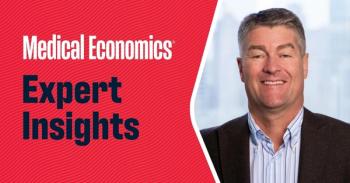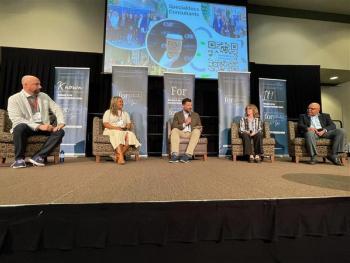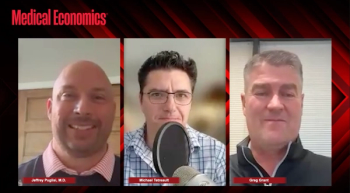NALINI MATTAI, MD
Pasadena, California
What my practice was like before concierge
I’m a family physician and we have a very busy primary care practice; we see patients of all ages from babies to seniors, and everybody in between. A very busy practice in Pasadena.
Why I decided to explore concierge medicine
I wasn’t really looking to transition. I wasn’t even thinking about concierge medicine. But a friend had introduced me to a friend who was doing concierge medicine in Pasadena. A few years ago, there was a movement toward concierge medicine. But I didn’t really give it much thought because the only option we had seen at that time was to go fully concierge. And I didn’t want to do that. And so when my friend introduced me to another friend who was doing this hybrid concierge model, I thought, “Oh, that’s interesting.” And then we got this flyer in the mail, and I thought, “Okay, I’ll take a look.” And so it started that way. I’m always interested in new things, and just out of curiosity I pursued it a bit. And then I ended up trying it.
The benefits I’ve experienced from transitioning to concierge medicine
One of the things I’ve always wondered was, “What would it be like to have more time with my patients?” This is really nice, because we are able to spend an hour with our patients and I don’t feel rushed. And I think my patient doesn’t feel rushed. Now I see what it feels like to do that, and it’s really nice. So I feel like that’s a big benefit.
Sometimes [in traditional practice] you really felt kind of exhausted after a session because I was going from one patient to the next patient without having a lot of time to just regroup and think about that experience with our patient. And so, this way you feel like you can process that information a bit more. And that’s what I really like. The other thing I really like is that there’s an email that our patients can use that goes directly to my cell phone. So I get those emails very quickly, as opposed to logging into my [electronic health record] to get my emails through the patient portal. I feel like it speeds up information coming from that patient, so it’s nice in that way, as well.
The biggest challenge I faced during my practice transition
Who is Nalini Mattai, MD?
Medical Specialty: Family Medicine
Practice Name: Huntington Family Medicine
Practice Location: Pasadena, California
Years as a Concierge Doctor: 3.5 (hybrid practice)
Concierge Vendor: Concierge Choice Physicians
Medical School: Northwestern University Feinberg School of Medicine
Getting the logistics down. For example, we have a special phone line available for patients who are on this service. So when I’m seeing patients, my office manager or my nurse carry the phone with them, so that phone can be answered. Also, figuring out the schedule of where to put the time slots for our patients who are participating in this concierge program, so that we can honor all of the patient expectations and requirements. So just those logistics, but otherwise, it was not difficult. It was a great transition.
If I could do the practice transition again, what would I do differently?
I didn’t go into it with a lot of expectations, but I feel like it went really well. I didn’t really know what to expect. So I was really surprised and happy about how many patients did opt to participate in the program. When you start a program like this, you just think, “Who’s going to sign up for that?” We already offer our patients quite a bit, do they really want to have these extra services? Do they feel like they need that? And what I found was that there are many patients who have needs, and they feel like they could benefit from having more direct access. We have patients who have many health needs that need a quick response, and that’s helpful to them. And then we have patients who are very busy. Maybe they have small children, and they just aren’t able to bring all their children into a visit. And just having the convenience of being able to quickly email or text, that’s helpful. I was surprised to how many folks felt like this would be helpful to them.
How concierge has affected my feelings of burnout, work-life balance and career satisfaction
I’d always wanted to know what it felt like to spend time with a patient without having to think about the time. And it’s been what I would have thought medicine was supposed to be when I went into it so many years ago. My patients are such gracious people, and they’re very considerate of my time. So even though they are participating in this program, where they could potentially email at any time or call at any time, they’re very considerate. And it’s helped to make our relationship better. I really feel that it is helpful to people who need extra time. And I think that’s really what this program brings.
Why I chose my concierge vendor
They’re very encouraging. And what [Concierge Choice] did was they reached out to our patients and notified them that there’s this additional service for those who need it or would like something like that. And then they had this meeting at a local hotel, where they invited patients to come in, and they gave a presentation about the nature of the program, what kind of benefits folks would get from it. And then asked me to say a few words. And they helped anybody who was interested gain more information and helped them to sign up if they wanted to.
The nice thing was that they did not pressure my patients. That was something I definitely didn’t
“I’d always wanted to know what it felt like to spend time with a patient without having to think about the time.”
want. So I feel like they helped us run smoothly and helped us be able to do the administrative side of the program so that I could just see my patients and not have to worry about certain things that needed to be done. We had to make sure we had the systems in place, but they really helped to make everything run more smoothly.
My advice for physicians considering concierge
Often, we physicians don’t realize the needs of some of our patients. And that’s something that I came to realize — that there was a certain segment of our patient population that actually embraced having that extra time with their provider and that extra access. The practice of medicine is the same, we follow the same guidelines, there’s nothing different about the kind of care that our patients in this program get. I think the biggest thing is just having the time and the access. You might be surprised — there are patients in your population who would really embrace this. And so, don’t necessarily discount it and don’t feel that people may not sign up for it, because they may be looking for that. I would say, give it a try. I think it is actually a win-win type of a situation.
Editor's note: This transcript was edited for length and clarity.







